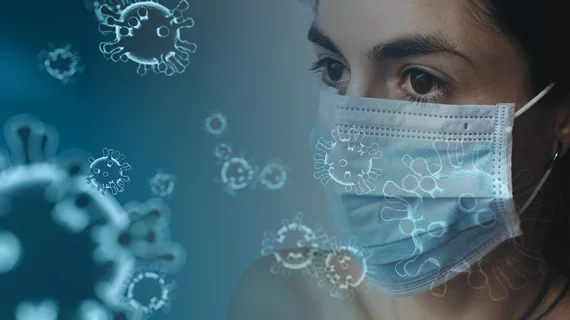Brain imaging insights associated with COVID-19 in spinal fluid shed light on neurological symptoms
New research has revealed that brain imaging findings in certain COVID-19 patients are associated with the presence of the novel virus in their cerebrospinal fluid.
A number of people have complained of lingering neurological symptoms after contracting the coronavirus, with some patients requiring brain imaging for their condition even facing a higher risk of death.
Understanding the relationship between imaging and cerebrospinal fluid findings may improve clinicians’ understanding of these neurological effects, researchers explained June 8 in the Journal of Neuroimaging.
But it isn’t that straightforward, the group cautioned. The combination of these specific brain MRI results and SARS-CoV-2 in spinal fluid are rare and may be attributed to other conditions caused by the virus.
“Although hyperintense lesions in the brain/spine and leptomeningeal enhancement are associated with the presence of SARS-CoV-2 in the cerebrospinal fluid, it is important to recognize that a positive SARS-CoV-2 PCR in the cerebrospinal fluid is uncommon,” lead author Ariane Lewis, MD, of NYU Langone Medical Center, said in a statement.
To reach their conclusions, the team scoured 117 publications over a one-year period to find 193 patients with COVID-19 who also underwent brain imaging and CSF testing. Sixty-five percent had central nervous system hyperintense lesions.
Those with such lesions on the brain/spine were more likely to yield a positive PCR test for COVID-19 in cerebrospinal fluid compared to those without brain abnormalities (10% vs. 0%).
Additionally, 25% of patients with leptomeningeal enhancement tested positive for SARS-CoV-2 in the cerebrospinal fluid, compared with 5% of patients without such enhancement.
Although the imaging findings are “predominately” due to inflammation, hypoxia, or ischemia in the central nervous system, rather than infection itself, the study results still shed light on the confounding neurological effects of COVID-19, the authors concluded.

